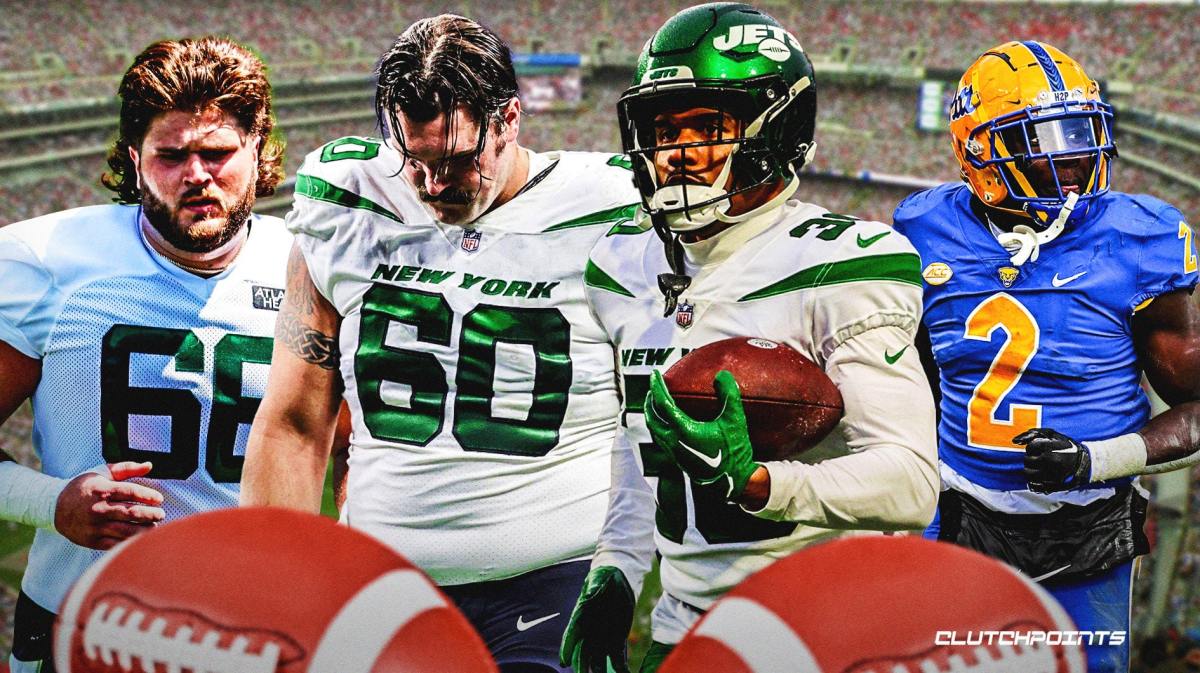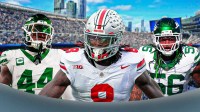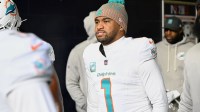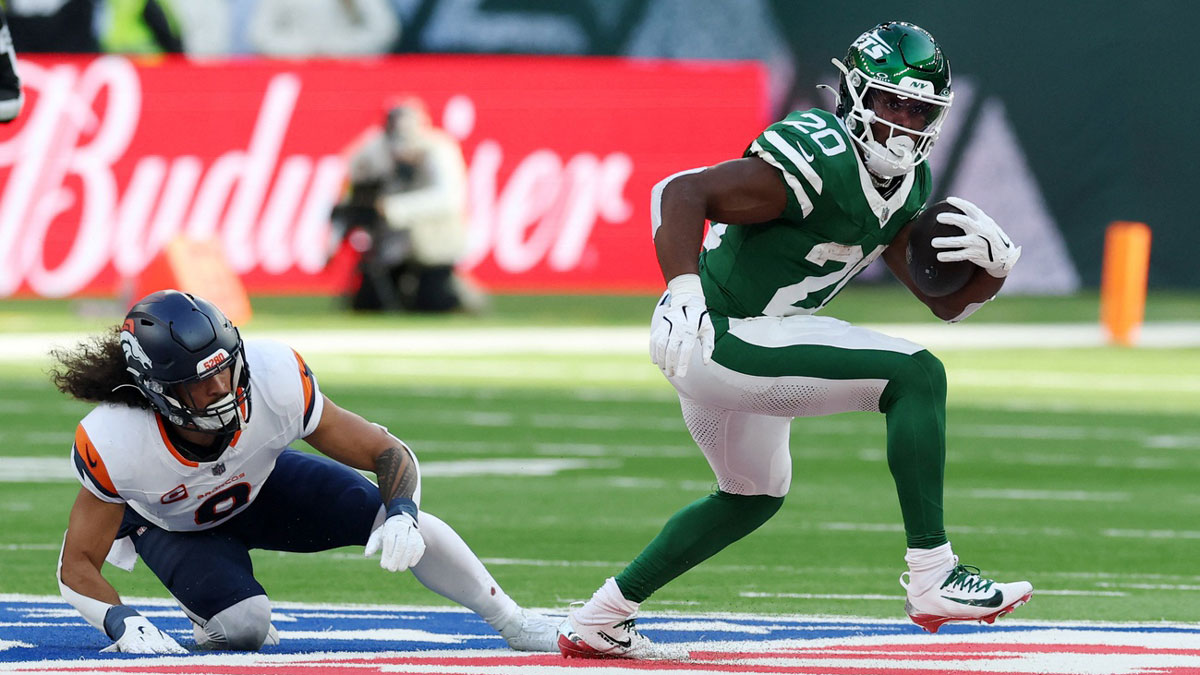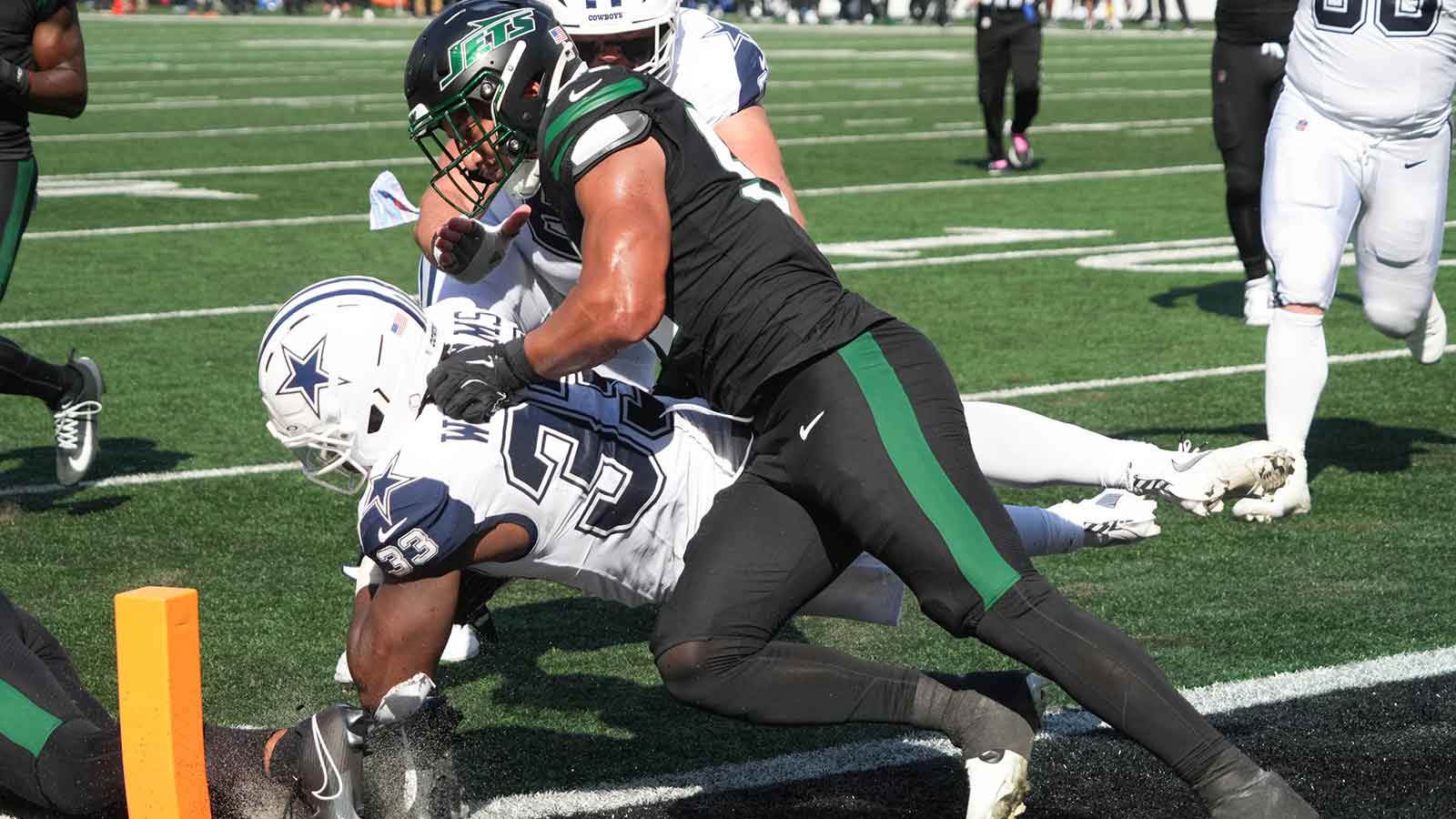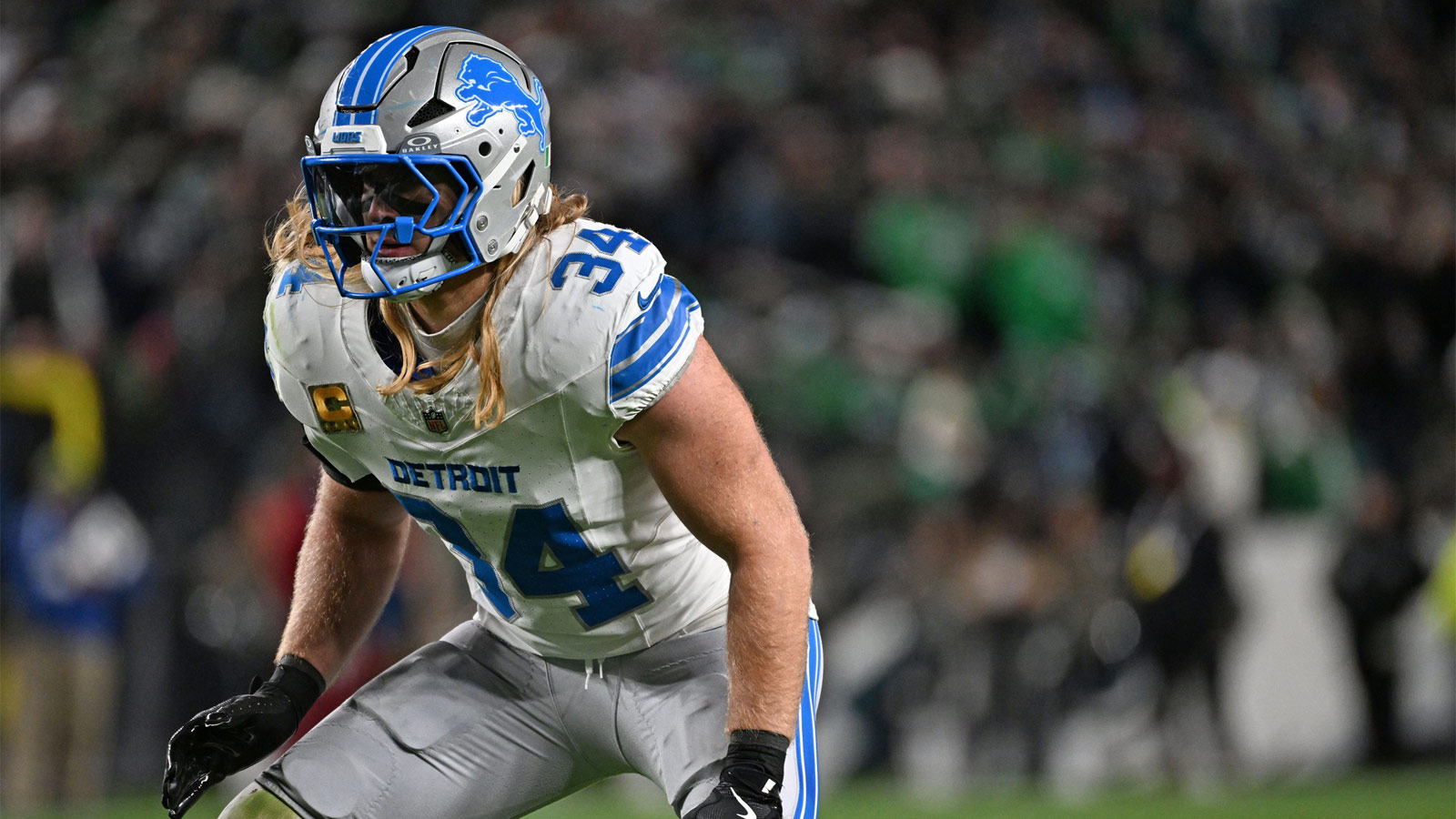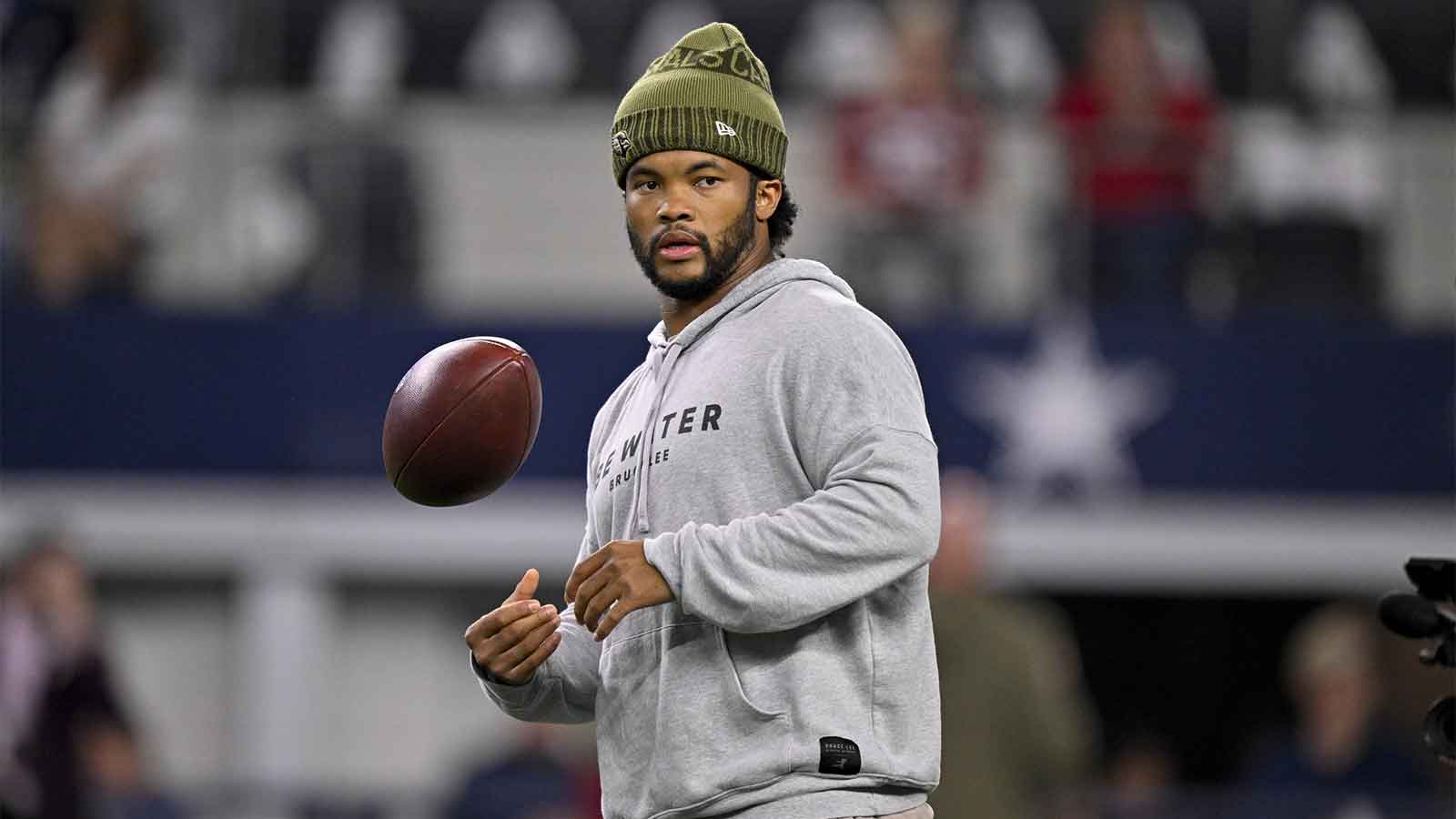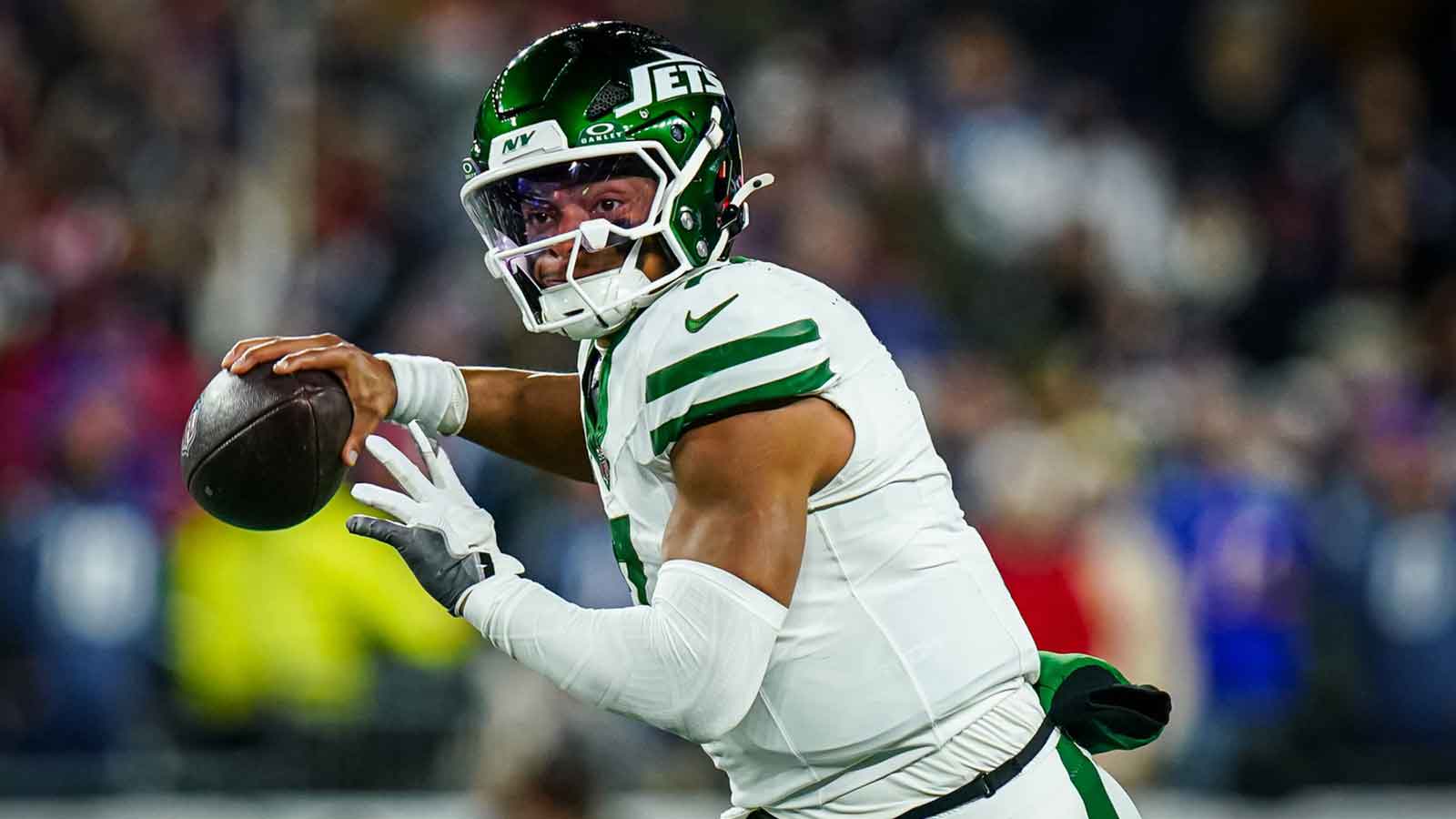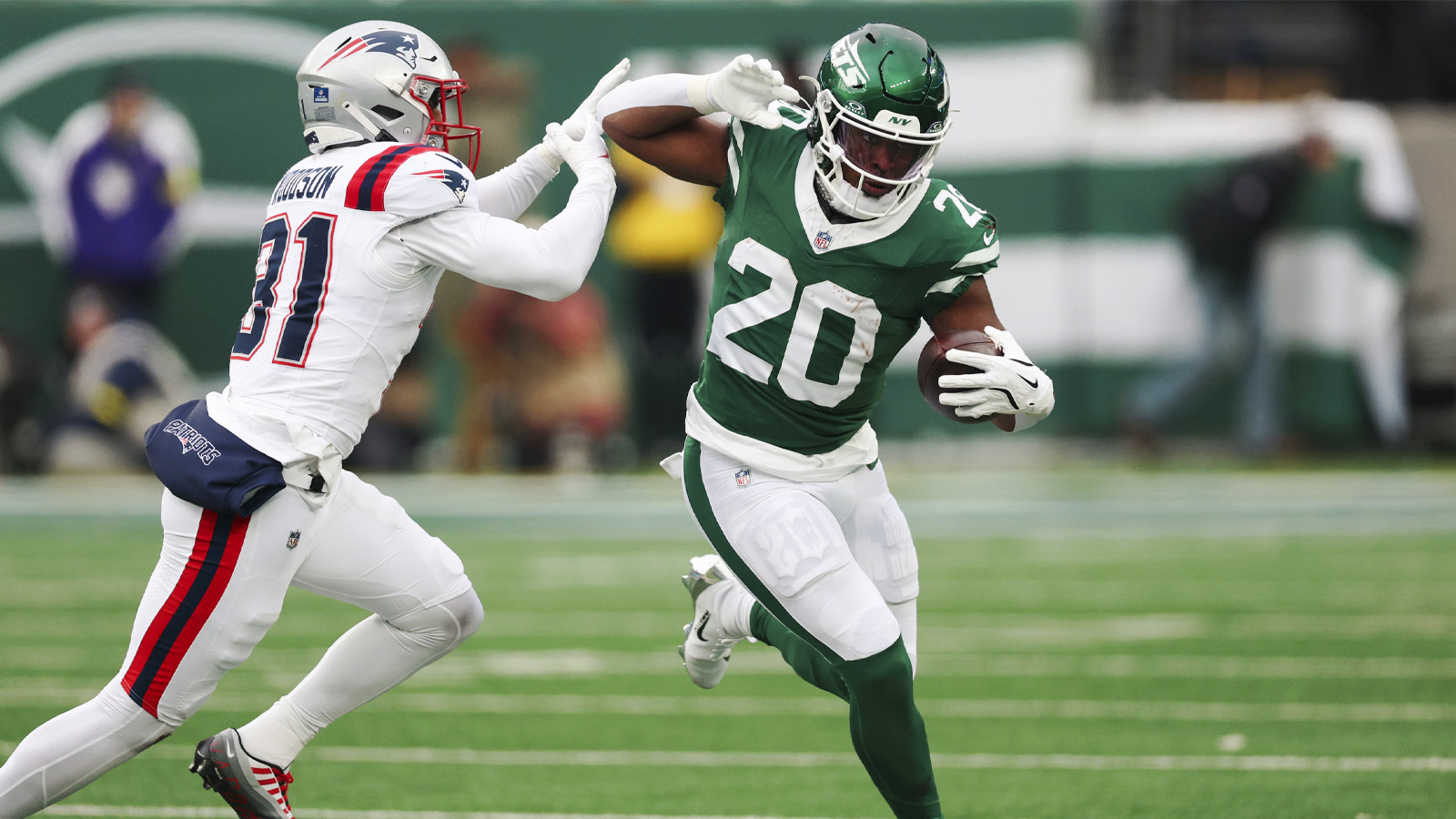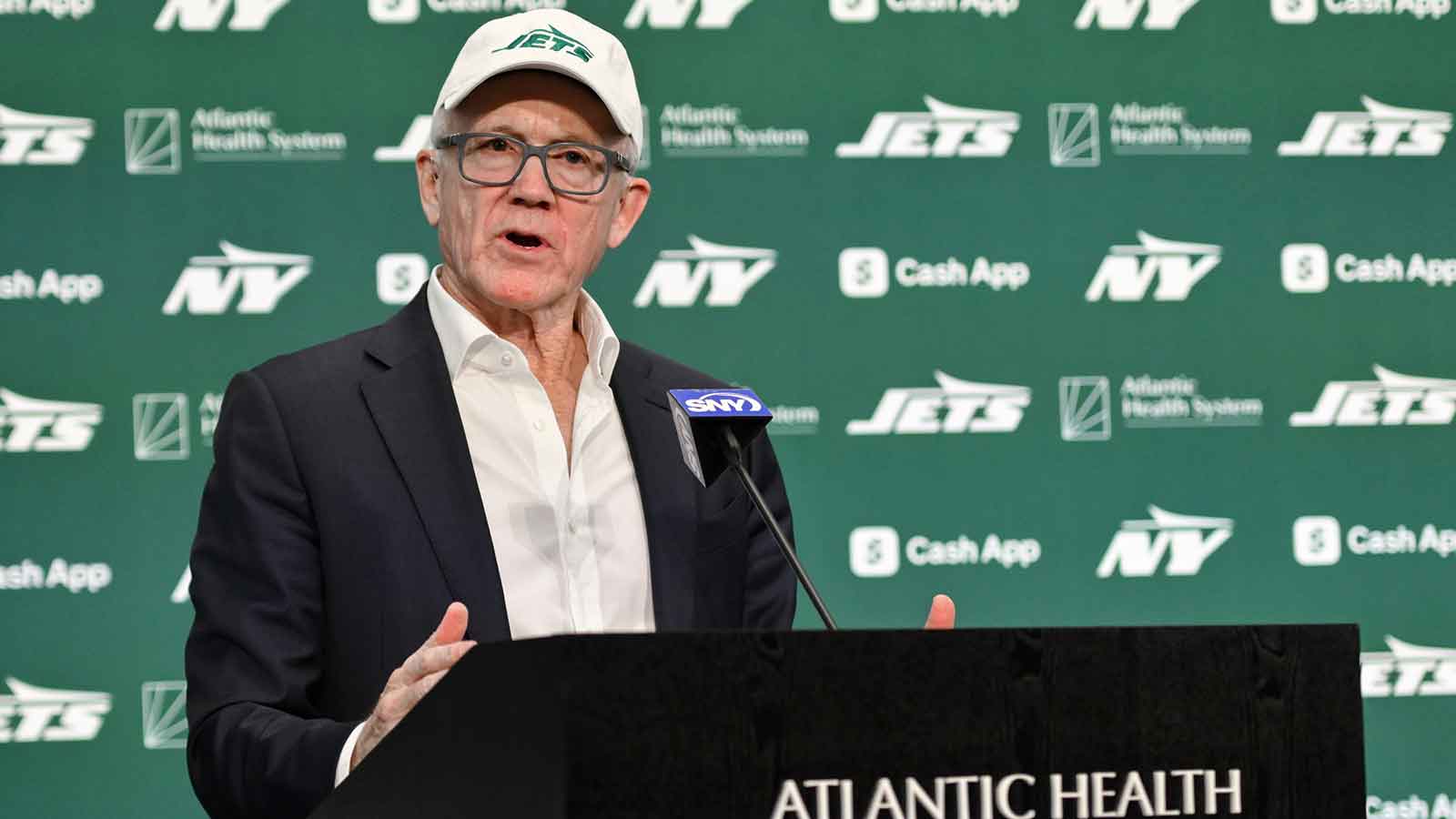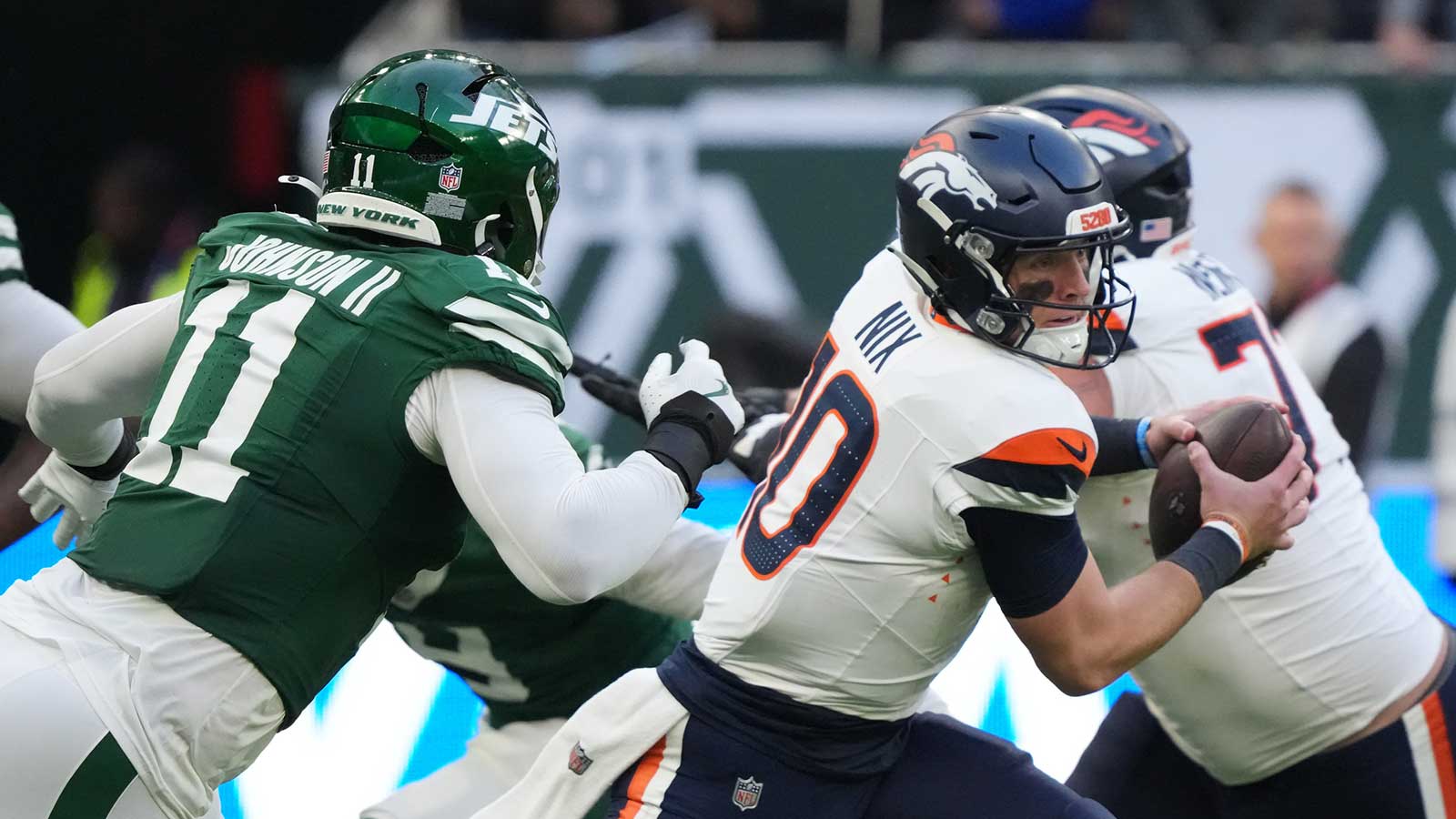The New York Jets believe the addition of Aaron Rodgers makes them a Super Bowl contender this season. So, it’s hard to envision Robert Saleh and company relying on rookies as heavily as they did the past two seasons.
To that point, several of New York’s rookies will have development seasons in 2023, meaning they may not play much at all. Even first-round pick Will McDonald IV is viewed as somewhat of a project, a freakishly athletic edge rusher who needs to get stronger to be an NFL regular.
#Jets HC Robert Saleh when asked about rookie Will McDonald IV and how he looks so far as a rookie in OTAs:#TakeFlight @JetNation 🛩🐉🏈 pic.twitter.com/Wqf8WuW48s
— Dylan Tereman (@DTereman) June 11, 2023
Unlike lower-round draft picks, McDonald will play a role this season, though. He’s certain to be part of the extensive rotation the Jets use on the defensive line. But his biggest value could some next season when veteran Carl Lawson and pass-rushing specialist Bryce Huff could leave as free agents.
That said, let’s examine which Jets veterans could be pushed for playing time by rookies in 2023.
Connor McGovern, C
The veteran who faces the biggest challenge to hold on to his starting role with the Jets is center Connor McGovern. New York re-signed McGovern to a one-year, low-cost contract ($1.165 million) after his three-year, $27 million deal expired. Then they selected center Joe Tippmann in the second round of the 2023 NFL Draft.
Tippmann is going to get a long look during training camp and preseason. The 22-year-old is massive (6-foot-6, 317 pounds) and very athletic for his size. He was a two-year starter at Wisconsin, where he made all the blocking calls at the line and was viewed as a team leader.
At minimum, Tippmann was drafted to be the Jets' center of the future. Time will tell if he’s the center of the present.
"It hasn't really sunk in yet, but it is an amazing feeling"
Joe Tippmann talks with @JeaneCoakley about what it means to play for the Jets, advice he's gotten from people around him, playing with Aaron Rodgers, and more: https://t.co/VNlsVrch4L pic.twitter.com/67oqWQd4Ee
— Jets Videos (@snyjets) May 5, 2023
Rodgers may have some say in this decision. How comfortable the 39-year-old is having a rookie play such an important position on the offensive line will go a long way toward deciding who starts at center, one would think.
McGovern played every offensive snap last season, his third with the Jets after three seasons with the Denver Broncos. Pro Football Focus gave him a 69.6 overall grade, a drop from 75.9 in 2021. He allowed five sacks and 24 QB pressures, though quarterback Zach Wilson didn’t help his line by his indecisiveness. The 30-year-old took a big hit in his run-blocking grade, falling to 69.7 from 78.9. He also had received little interest on the free agent market, a testament to how NFL teams view him at this stage of his career.
But McGovern is a respected veteran and likely very motivated this season. He won’t be an easy out as the starting center, especially if Rodgers is more comfortable with an experienced player at the position (former Washington Commanders center/guard Wes Schweitzer is also in the mix).
Saleh said the best five linemen will start, regardless of position. Both Tippmann and McGovern have played guard, so that opens a small chance that each could start on the line. But with guards Alijah Vera-Tucker and Laken Tomlinson on the roster, it’s likely Tippmann will need to beat McGovern out at center for the chance to start.
Michael Carter, RB
Breece Hall is the Jets No. 1 running back. But the second-year pro is coming off a torn ACL, so the Jets likely will be cautious with him during camp and maybe the start of the season. It should be noted, the Jets believe Hall will be ready to play in some fashion Week 1 against the Buffalo Bills.
Breece Hall
Israel Abanikanda
Michael Carter
Bam KnightEasily one of the best RB rooms in the NFL, maybe even the best 🔥✈️#Jets | #TakeFlight pic.twitter.com/IDSXM4t4YH
— Harrison Glaser (@NYJetsTFMedia) May 25, 2023
But who’s No. 2 on the depth chart? The obvious choice should be Michael Carter, who led New York in rushing (639 yards) as a rookie in 2021.
But after averaging 4.3 yards per carry as a rookie, Carter dropped to 3.5 last season. His lack of production really showed after Hall was injured in Week 7 against the Denver Broncos, when Carter had one good game the rest of the season (76 yards on 12 carries in Week 9 against the Buffalo Bills). In the last five games, all Jets losses, Carter had 32 yards on 15 carries and was replaced as the starter by undrafted free agent Zonovan “Bam” Knight.
Saleh said he expects Carter to bounce back in a big way in 2023. But he’s going to be pushed for playing time by Israel Abanikanda, the explosive running back the Jets drafted in the fifth round. The Brooklyn native exploded for 21 touchdowns (20 rushing, one receiving) and averaged 6.0 yards per rush (1,431 yards on 239 carries) last season at Pitt. He’s not as polished as Hall, but they share similarities as home-run threats with the ball in their hands.
Carter does not have that ability. His strength is breaking tackles and gaining yardage after contact. He excelled in that area as a rookie and failed to do so last season. Carter is also an excellent receiver, catching 41 passes on 47 targets in 2022, though for a meager 288 yards. Still, that’s an area that gives Carter an edge over Abanikanda.
In a perfect world, Hall will be 100 percent and will be the lead back out of the gate. If he’s not ready, then Carter will have to prove he’s still the steady back the Jets saw in 2021 and a better option than the exciting Abanikanda.

